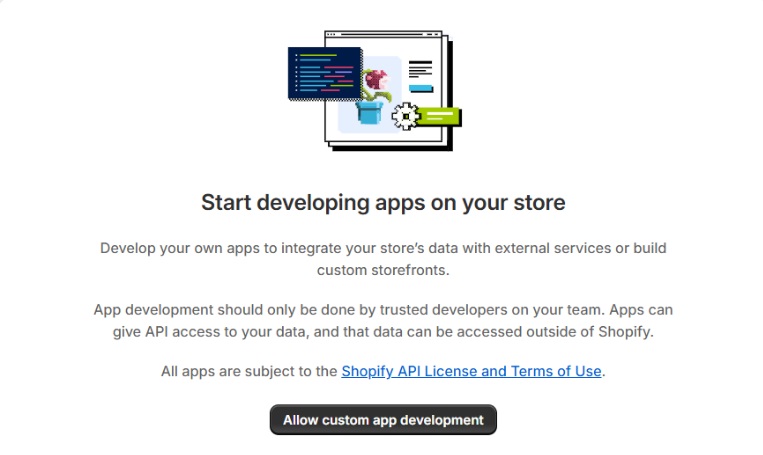How To Hide Out Of Stock Products on Shopify - No App
Many Shopify store owners ask, "How do I hide out-of-stock products?" Unfortunately, Shopify does not offer a built-in solution, and most apps that do this require a paid subscription.
In this guide, I'll show you how to hide products with zero inventory using the Shopify Storefront API via a custom Ruby without affecting pagination.
Why Shopify Doesn't Support This by Default
Editing collection.liquid to exclude out-of-stock items can break pagination and filtering. You can go through and manually adjust each collection to filter out of stock products, but this is time-consuming and not scalable if your store has lots of collections.
Many users have asked Shopify for a native fix, but they have yet to implement one: Reddit Discussion.
Free & Fast Method: Shopify Storefront API
The best way to hide out-of-stock products is by programmatically updating collection rules to include an inventory filter.
Prerequisites
- You must have Ruby installed on your computer.
- Install the required gems:
shopify_api(v14.8.0) andlogger(v1.6.6). - Create a custom Shopify app with API access.
Step 1: Create a Shopify Custom App
- Log in to your Shopify store.
- Go to Settings > Apps and Sales Channels > Develop Apps.
- Enable custom app development.
- Create a new app and name it something like
Hide Out of Stock. - Click API Credentials and allow
read & writepermissions for products. - Use Shopify API version 2025-01.
- Install the app and retrieve your Admin API Access Token.











Step 2: Run the Ruby Script
Copy the script below and save it as hide-out-of-stock-products.rb.
Replace SHOP_NAME, ACESS_TOKEN and LIMIT with your values.
#!/usr/bin/env ruby
# frozen_string_literal: true
require 'shopify_api'
require 'logger'
# Shopify store credentials
SHOP_NAME = "your-store-name"
ACCESS_TOKEN = "YOUR_ACCESS_TOKEN" # Use the admin token, not the API secret
LIMIT = 5 # Adjust as needed
ShopifyAPI::Context.setup(
api_key: "DUMMY_VALUE",
host_name: "DUMMY_VALUE",
scope: "DUMMY_VALUE",
private_shop: "#{SHOP_NAME}.myshopify.com",
api_secret_key: ACCESS_TOKEN,
is_embedded: false,
is_private: true,
api_version: "2025-01"
)
session = ShopifyAPI::Auth::Session.new(
shop: "#{SHOP_NAME}.myshopify.com",
access_token: ACCESS_TOKEN
)
client = ShopifyAPI::Clients::Graphql::Admin.new(session: session)
# GraphQL query to get all collections and their filters
GET_COLLECTIONS_QUERY = <<-GRAPHQL
{
collections(first: 100) {
edges {
node {
id
title
ruleSet {
appliedDisjunctively
rules {
column
relation
condition
}
}
}
}
}
}
GRAPHQL
response = client.query(query: GET_COLLECTIONS_QUERY)
result = response.body
errors = result.dig("errors") || result.dig("data", "collectionUpdate", "userErrors") || []
if errors.any?
puts "❌ Error fetching collections: #{errors}"
exit
end
collections = result.dig("data", "collections", "edges") || []
index = 0
collections.each do |collection|
index += 1
break if index > LIMIT
collection_id = collection["node"]["id"]
title = collection["node"]["title"]
rule_set = collection["node"]["ruleSet"]
next if rule_set.nil?
rules = rule_set["rules"] || []
has_inventory_filter = rules.any? { |rule| rule["column"] == "VARIANT_INVENTORY" && rule["relation"] == "GREATER_THAN" && rule["condition"] == "0" }
unless has_inventory_filter
new_rules = rules + [{ "column" => "VARIANT_INVENTORY", "relation" => "GREATER_THAN", "condition" => "0" }]
update_mutation = <<-GRAPHQL
mutation {
collectionUpdate(input: {
id: "#{collection_id}",
ruleSet: { appliedDisjunctively: false, rules: [#{new_rules.map { |r| "{ column: #{r['column']}, relation: #{r['relation']}, condition: #{r['condition'].inspect} }" }.join(", ")}] }
}) {
collection { id }
userErrors { field message }
}
}
GRAPHQL
update_response = client.query(query: update_mutation)
puts update_response.body.dig("data", "collectionUpdate", "userErrors") ? "❌ Error updating #{title}" : "✅ Updated: #{title}"
end
end
puts "🎉 Finished processing collections."
Final Steps
- Open a terminal and navigate to the script folder.
- Run:
gem install shopify_api - Run:
ruby ./hide-out-of-stock-products.rb
That's it! Your out-of-stock products will now be hidden automatically.
Need help? Feel free to contact me!
Let me know in the comments if you run into any issues or have questions.
